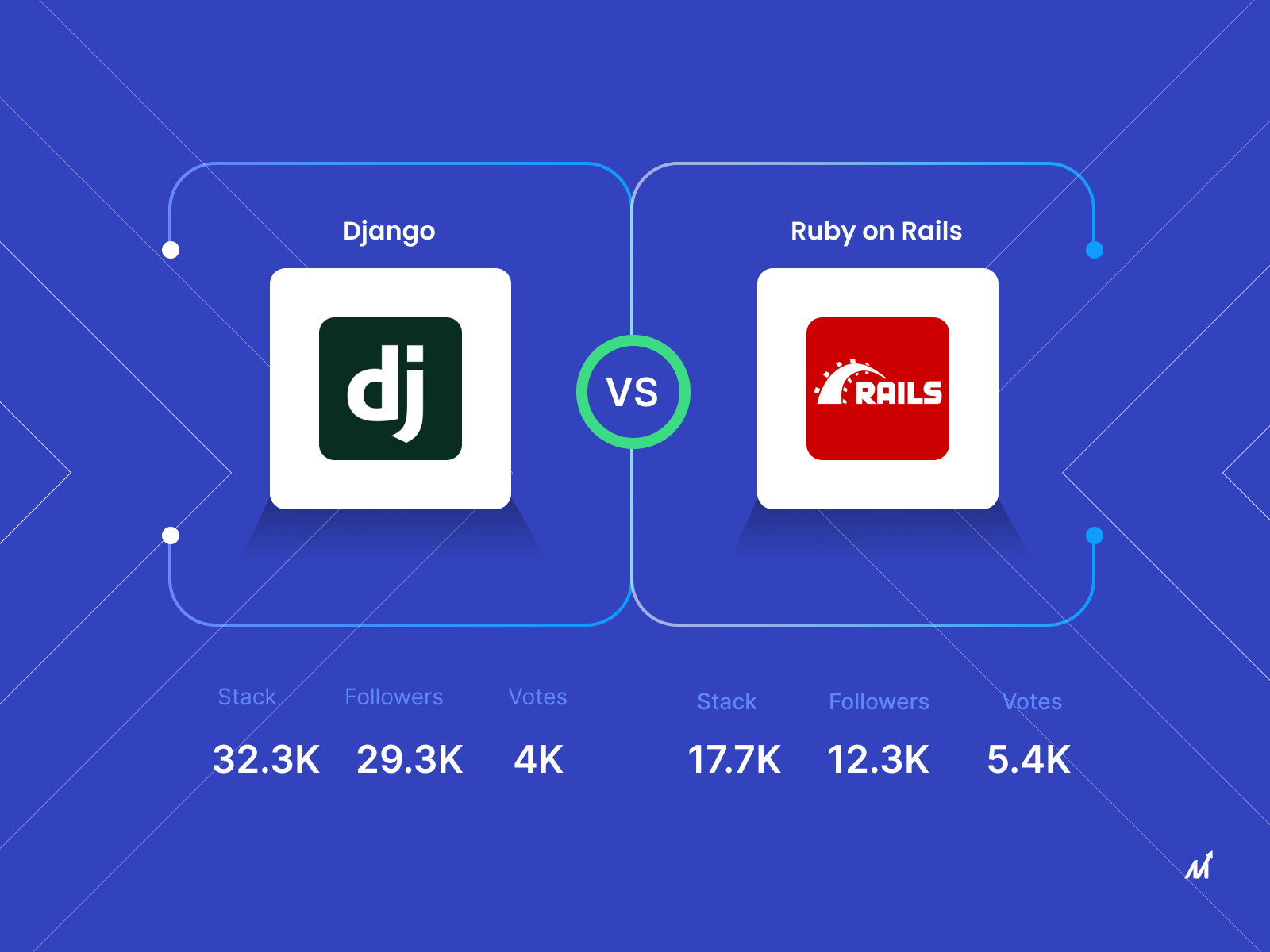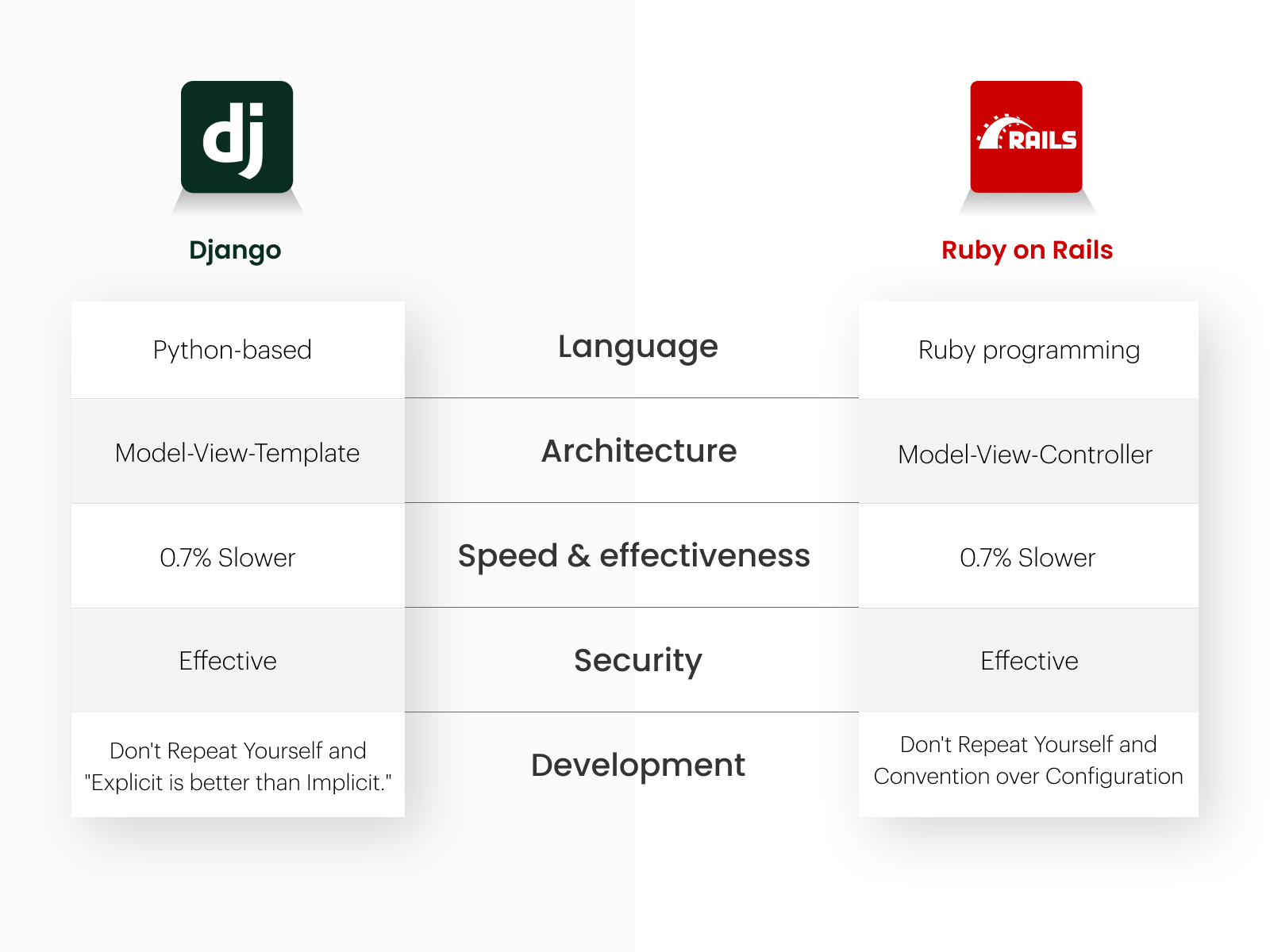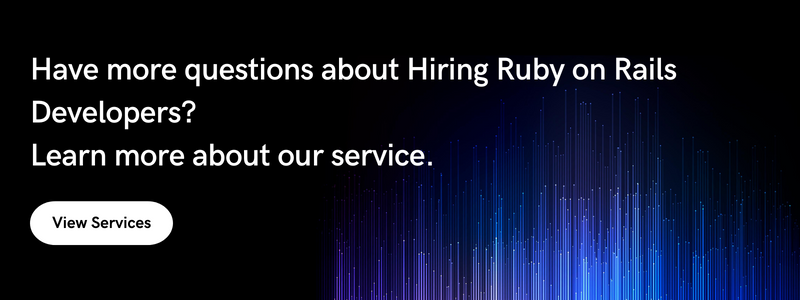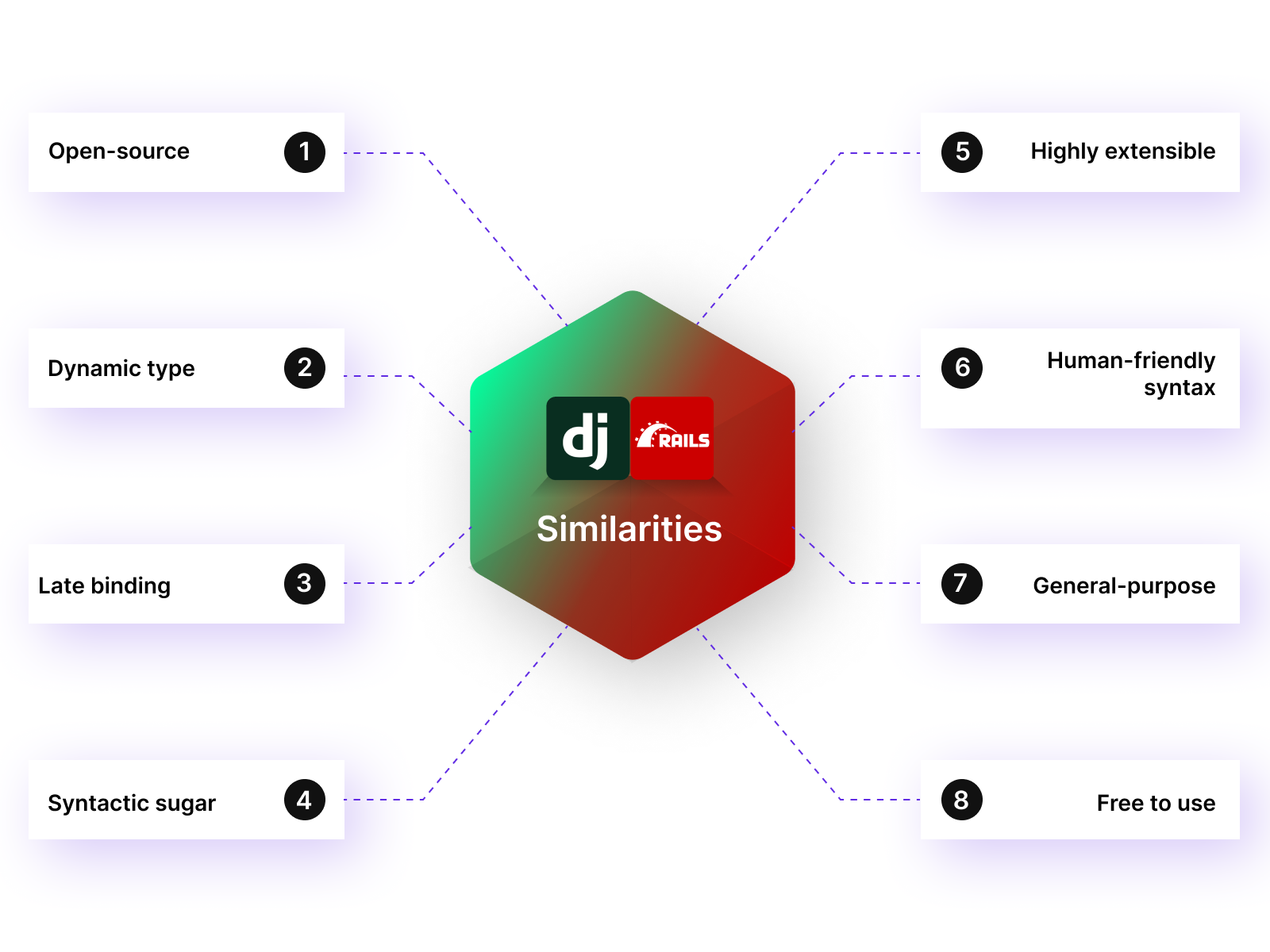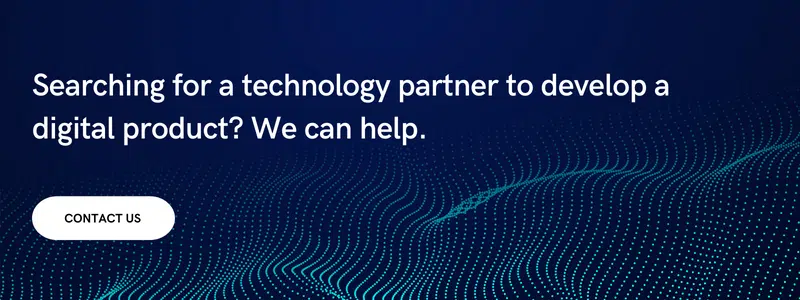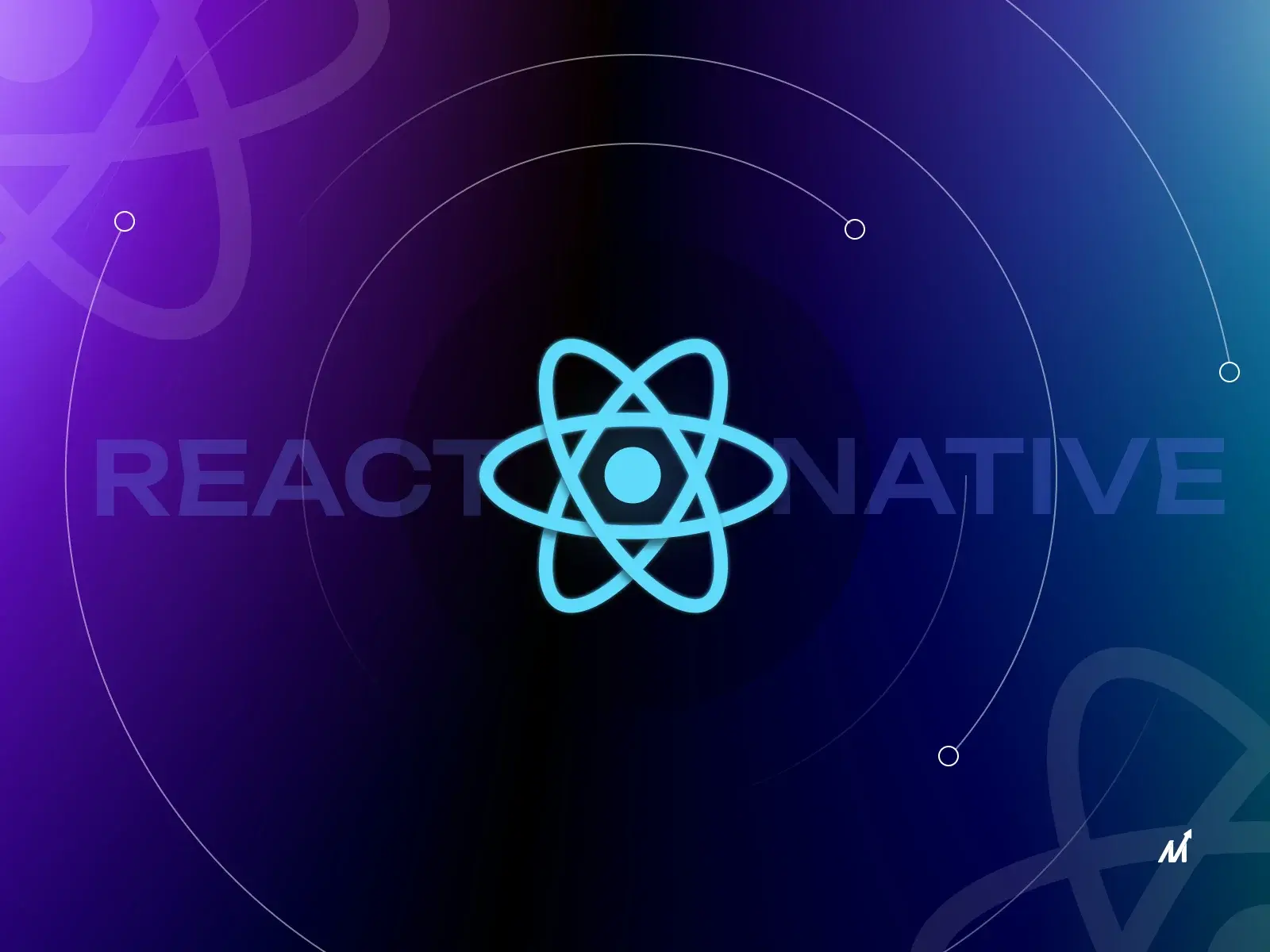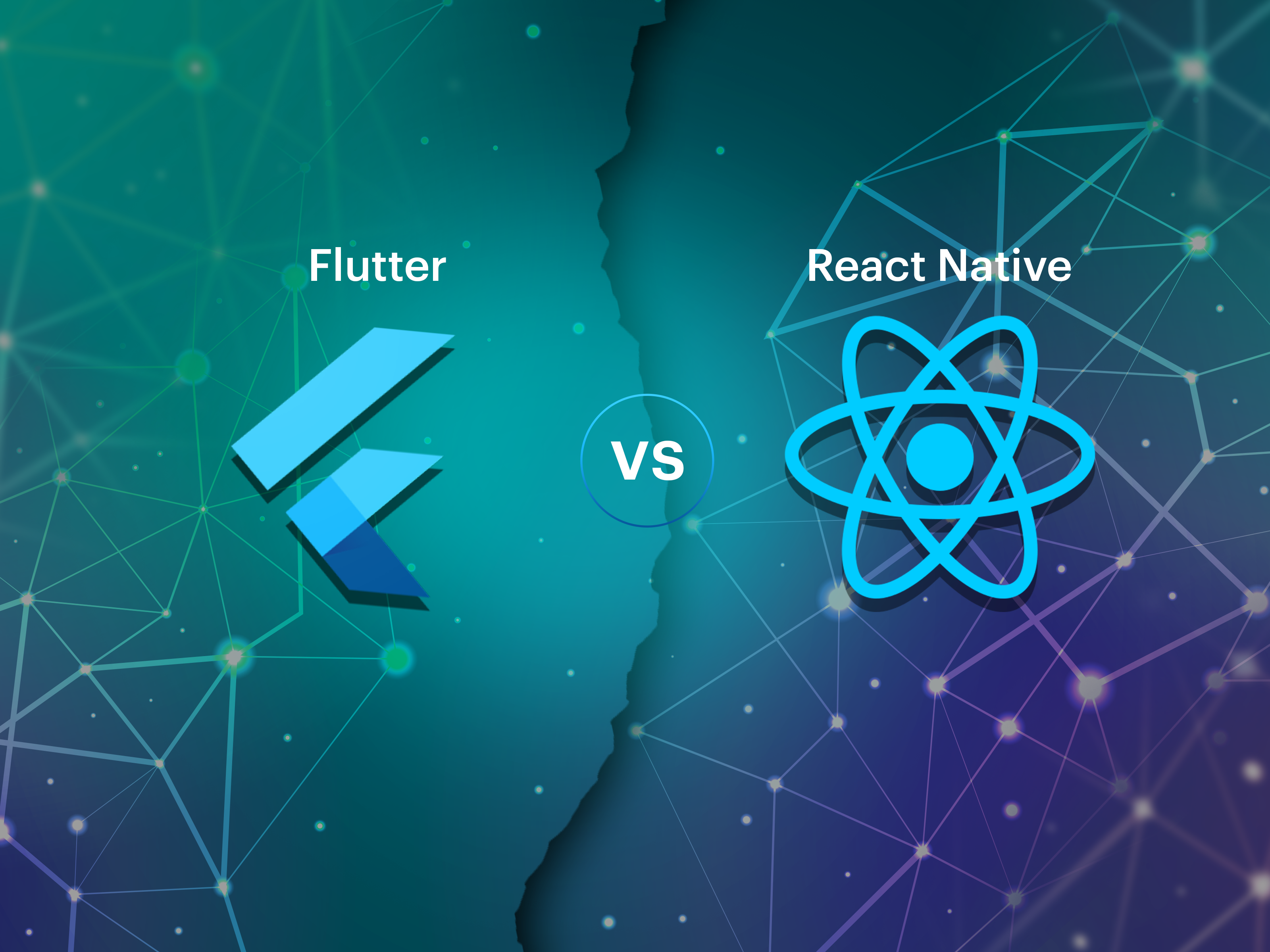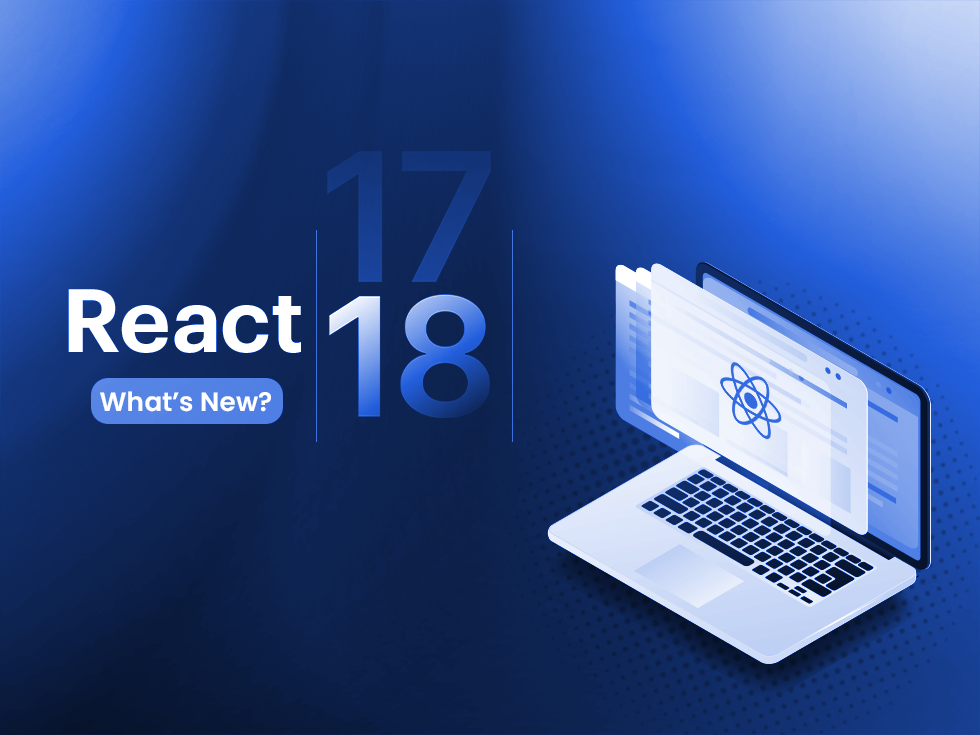Ruby On Rails Vs Django: Introduction
Web development frameworks come in a wide variety in the programming world. Ruby on Rails vs Django has distinguished itself as the top option. They are quickly becoming the most popular web frameworks, and their popularity will only increase in the years to come. Undoubtedly, both languages stand out in terms of development, community, and usage across the globe. They are also well-known for serving as the foundation of any digital project.
Many Python Django development businesses compare the fundamental aspects of Django vs Ruby on Rails to guarantee the highest performance of the final product and significant efficiency in its creation. Therefore, if there is no surety which of Rails vs Django will help you meet your business needs, we share our study, information, and opinion.
Rails Vs Django: Frameworks Explored
What Exactly Is Django?
Python app development typically uses Django; a Python-based web platform first launched in 2005. Its popularity can be attributed to its being an all-purpose, open-source, and accessible framework. Experts have high accolades for Django’s features. It was designed to make developing complex, database-driven websites easier. The simple and helpful architecture of this framework encourages rapid development.
What Exactly Is Ruby On Rails?
Because it is a model-view-controller framework, Rails offers excellent default structures for a database, web services, and pages. Professionals are supposed to use the time-saving method of writing code. This paradigm is built on Don’t Repeat Yourself (DRY) and Convention Over Configuration. The first avoids the need to repeat the same coding activity. On the other hand, the second indicates that the environment you work in allows for various logical instances by default, such as systems, libraries, languages, etc. Programming becomes more accessible since you can adapt to them rather than setting up new rules every time.
Ruby On Rails Vs Django: Differences Explored
1. Language
Django is a Python-based web framework, whereas Ruby on Rails framework is based on the Ruby programming language. Ruby has a very versatile user interface, while Python has simpler grammar and is simpler to learn.
Ruby is well known for its features like flexibility and freedom, as well as for its comprehensible syntax. At the same time, Python is regarded as one of the top programming languages and is known for emphasizing the clarity and readability of the code. Python is also the most straightforward programming language to comprehend and implement swiftly. Applications of all shapes and sizes can be created with Python.
On the contrary side, Ruby was created to make language creation enjoyable. The most significant difference may be noticed behind the hood, even though apps started using either would look and work essentially identically.
2. Architecture
Both web development frameworks have adopted MVC, which is one thing they have in common (Model-View-Controller). However, it is known as MVT for Django (Model-View-Template). Most of the time, MVC and MVT are comparable and only slightly different from one another.
In Django, the View is the Regular Expression-based URL Dispatcher that manages what the users are expected to view. In contrast, the Model represents the database that explains the data structure. Finally, Template is a web templating system that combines Django Template Language (DLT). Django itself is in charge of the controller portion in this case.
Regarding RoR, the Model refers to the database’s data, which includes comments, photographs, postings, and other items. ActiveRecord takes care of everything. In this instance, the View wraps the data in the HTML template before sending it to the Controller, which ActiveView then manages. The ActionController is now responsible for handling requests, connecting Model and View, and sending responses to the web browser.
3. Speed & Effectiveness
Ruby on Rails performs 0.7% faster when compared to Django terms of performance. This is because Rails has the benefit of a vast collection of incredible modules and plugins to increase the speed and, ultimately, the performance of this framework. However, Django is a fantastic option for a web framework that also supports quick development cycles.
In addition to authentication modules, JSON serializers, deserializers, etc., the Django REST framework provides convenience. REST is one of Django’s essential features, so when comparing the two development frameworks, Django may hold an advantage over Rails.
Furthermore, due to their use of contemporary programming languages and the availability of code optimization tools, both Ruby on Rails and Django are winning the race for performance.
4. Security
Security is a crucial component of any website or application; therefore, we had to consider it when comparing Django with Rails.
Django has undoubtedly adopted this feature from Python. NASA also uses the Django framework for Python, which speaks volumes about its safety. Active records support Rails, whereas Middleware supports Django. Django and Rails can defend your projects from attacks like SQL injection and cross-site scripting (XSS).
The Ruby and Django web development frameworks are both excellent options for security.
5. Fundamentals Of Development
The principles serve as the glue that binds the entire process of developing an app. Two guiding principles of the Django web framework are noteworthy: DRY (Don’t Repeat Yourself) and “Explicit is better than Implicit.” People can create widely supported, simple-to-use programs with this idea.
Additionally, Ruby on Rails is not short on design concepts. Additionally, it uses DRY and Convention over Configuration, which promotes the idea that to be productive, one should adhere to conventions rather than make your configuration. This boosts effectiveness and speed.
What Are Django & Ruby On Rails Used For?
With modern technologies like Artificial Intelligence (AI) and Machine Learning, the Django framework creates reliable, large-scale online applications, websites, and extensive databases (ML).
Math-intensive programming, scientific programming, and complicated projects require this framework. The Django programming language is capable of developing Rest APIs, as well as data visualization and analysis applications.
For server-side web applications, the creation of MVPs and prototypes, and tasks requiring scalability and real-time updates, Ruby on Rails is a fantastic substitute. Startups mainly utilize RoR, small firms, and short prototype projects that can expand and grow over the long term.
Angular, React, and Vue is well-known front-end frameworks and modules that use Rails. Additionally, unlike its competitors, it is very adaptive to any changes, enabling developers to experiment with the functionality of newly generated goods.
Ruby On Rails Vs Django: Similarities Between Both
Both the Django and RoR web frameworks have beneficial features highly regarded by several developers worldwide. Several characteristics deserve mention:
- Open-source
- Dynamic type
- Late binding
- Syntactic sugar
- Highly extensible
- Human-friendly syntax
- General-purpose
- Free to use
Rails Vs Django: Which Framework Is More Popular?
Django outperforms Ruby on Rails in terms of popularity, largely due to the enormous popularity of Python. It is one of the most popular programming languages, and its use is growing rapidly. It also implies that many Python/Django libraries and packages are available for building features quickly.
Rails Vs Django: Which One To Go For? Markovate’s Take
Ruby on Rails and Django in 2002 are still outstanding frameworks today, even after many years since their release, and it is up to you to decide which one will help you reach your project’s objectives. How would you then determine which is ideal for creating your web application? Here, we’ve compared both frameworks and provided a summary of when to utilize each.
Choose Ruby On Rails:
- When your RoR developers have top-notch skills and can work wonders.
- Using Gems makes it simple to market your goods more quickly.
- The rapid development of RoR makes iteration and deployment easier.
Choose Django:
- When you don’t want a configuration-based method.
- You do not require standard functionality.
- If you believe the Django philosophy fits Python better.
As you can see, each backend framework has advantages and disadvantages; you need to select the one that best suits your company’s demands. If you’re having trouble deciding between Django and Ruby on Rails and require expert advice on choosing the best option, get in touch with Markovate. Our expertise in Ruby on Rails and Django programming enables us to transform even your most ambitious concepts into finished products.
Rails Vs Django: FAQs
1. Does Ruby on Rails have a future?
Many big businesses still use RoR for their apps, including Imgur, Github, Twitch.tv. The Ruby on Rails framework has a solid foundation to build its future. Well-known businesses will continue to use RoR in development as long as its features and functionality are among the finest.
2. Which framework takes less time, Django or RoR?
When comparing the two frameworks, Ruby on Rails is 0.7% faster than Django.
3. Which of the two is the more user-friendly?
Both Ruby on Rails and Django frameworks provide first-class scalability. In terms of scalability, RoR performs a little better than Django. Python, a scalable and simple-to-learn programming language, is the foundation of Django, although Ruby on Rails has an advantage in scalability due to its flexible code.

